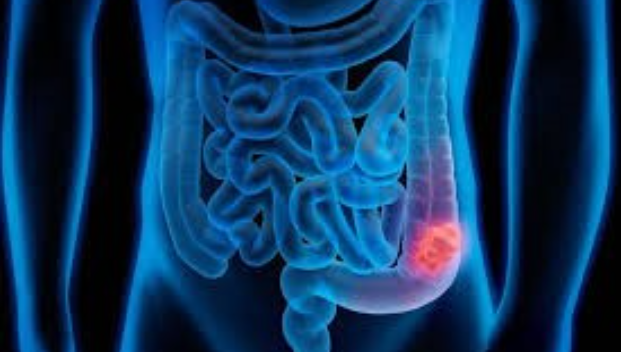A longitudinal study on outcome of Enhanced Recovery after Surgery (ERAS) protocols on patients undergoing surgeries for gastro-intestinal malignancies in a tertiary health care institute in Maharashtra.
Synopsis:
This study aims at finding out the effectiveness of ERAS protocols in the recovery and survival of patients who have either undergone surgery for various GI malignancies or going to have similar kind of surgery up to April 2025
Introduction:
Over the last 20 years, the perioperative care has improved significantly due to the better understanding of pathophysiological mechanisms underlying stress response to surgery. It was Kehlet who first observed that minimally invasive surgery together with appropriate analgesia, early mobilisation and oral feeding resulted in better outcomes(1).Although initially the main goal of the so called fast-track surgery was to shorten the length of stay, the most recent concept is more complex—it aims to attenuate stress response and decrease the negative influence of insulin resistance in postoperative period(2)(3).This in turn results in rapid functional recovery which, according to many, is considered the most important target of the modern perioperative care(4). The novel Enhanced Recovery After Surgery (ERAS) philosophy uses multimodal interventions such as the following: preoperative counselling, no mechanical bowel preparation, shortening preoperative fasting, balanced fluid therapy, use of laparoscopy and short-acting anaesthetic agents, appropriate pain control and early oral feeding and mobilisation(5)(6).In contrast to traditional care, ERAS involves multidisciplinary teams of surgeons, anaesthetists, nurses, dieticians and physiotherapists. Interestingly, it is the patient who is actively involved in the treatment process and plays a key role in it (7).The body physiologically responds to stress in a catabolic manner. The central nervous system mediates this, resulting in the production of various stress hormones and inflammatory mediators (8). More importantly, insulin resistance develops. Unlike traditional care, ERAS aims to attenuate the development of insulin resistance, a key element in prolonged recovery and increased morbidity. The larger the operation, the greater the graded response of resistance. Despite the developing hyperglycemia, a reduction of muscle and fat glucose uptake occurs. The loss of lean body mass coupled with the reduced glucose uptake and storage in muscle leads to reduced muscle function. This impairs mobilization. Further, noninsulinsensitive cells increase their glucose uptake. This increase can lead to several postoperative complications, such as infections and cardiovascular problems (9). But in any case of malignancy, metabolism is severely compromised by the occurrence, during the disease progression, of symptoms such as anorexia, nausea and vomiting, which do not allow for a normal nutrition and so a regular supply of carbohydrates, proteins, amino acids and vitamins. In addition to the reduced food intake, important changes of energy metabolism and biochemical/metabolic abnormalities in carbohydrate, protein and lipid biochemistry and metabolism have been observed. The most important carbohydrate abnormalities observed in cachectic cancer patients are increased glucose synthesis, gluconeogenesis and Cory cycle activity, insulin resistance, and decreased glucose tolerance. Protein metabolism changes seem to depend mainly from the lack of body adjustment to the increased energy demands and the inadequate food intake, which determines the activation of glucogenesis starting in particular from protein substrates (10). From a clinical point of view this metabolic condition is characterized by skeletal muscle atrophy and hypoalbuminemia. Moreover, hypertrigliceridemia, increase of free fatty acids, depletion of fat stores and decrease of LPL concentrations and activity, which is closely related with weight loss, have been constantly observed in advanced cancer patients. It has been suggested that the chronic action of mediators released by tumour cells and immune cells counteracting tumour is the main cause of the metabolic abnormalities characterising the cachectic neoplastic patient. In particular, proinflammatory cytokines IL-1, TNF-α and IL-6 play a central role in the pathogenesis of metabolic derangements associated with malignancyrelated cachexia. It may be hypothesised that, during the initial phases of neoplastic disease, the synthesis of proinflammatory cytokines leads to an efficient antineoplastic effect. However, their chronic activity leads to severe alterations of cell metabolism, with deleterious effects on body composition, nutritional status and immune system efficiency (10). Inspired by Danish Professor of surgery Henrik Kehlet, ERAS protocol questioned traditional perioperative care(11). Kehlet theorized that the avoidance of such perioperative doctrine shortens the length of hospitalization by reducing the metabolic stress, fluid overload, and insulin resistance placed on the body (3). Professors Kenneth Fearon and OlleLjungqvist added postulates to the ERAS protocol, developing the ERAS study group in 2001 and the ERAS Society in 2010. The international ERAS study group consisted of surgeons and anaesthesiologists who reviewed literature and evidence of the most optimal perioperative care (11).They created an ERAS protocol of 20 items along with a database to support the implementation of these principles. The protocol divided the perioperative period, into pre-, intra-, and postoperative time-periods based on the aggregation of marginal gains theory. This theory identifies, divides, and adapts each step taken through the entire perioperative patient journey to facilitate the efficient and safe progress from preoperative assessment to discharge and rehabilitation (12). 2010 saw the establishment of the ERAS Society with the goal of an international network of regional and national expert centers that facilitated ERAS protocol utilization (3).Currently, there is growing evidence that ERAS is beneficial in many other disciplines including colorectal, gastric, pancreatic, esophageal bariatric as well as in non-gastrointestinal specialties(13)(14)(15)(16). But, there is no definite study which found beneficial outcome in early stages of GI malignancy. So the present study aims at finding out role of ERAS protocol among patients undergoing planned surgery for gastrointestinal (GI) malignancy comparing the outcome of surgery with those who were not compliant to ERAS protocol









